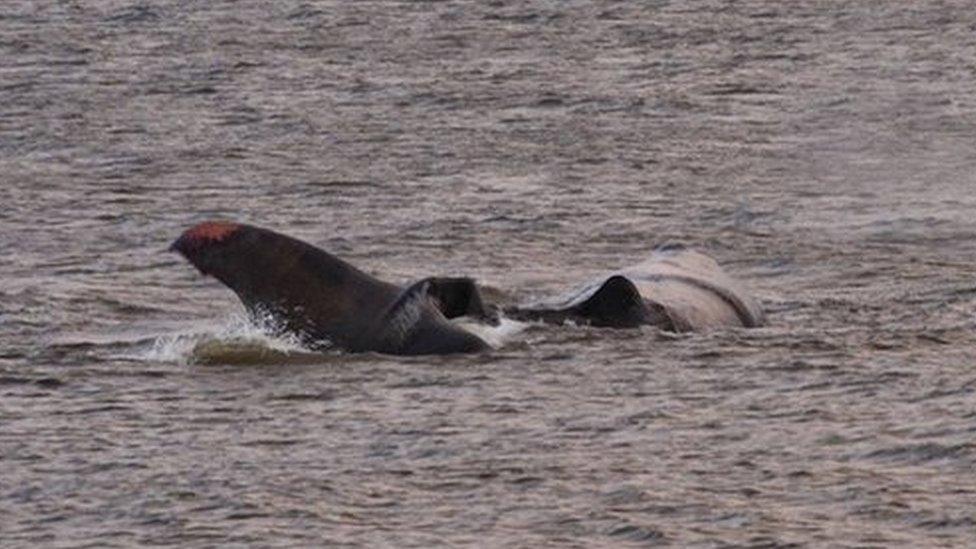Sheringham: Dead whale found washed up on Norfolk beach
- Published
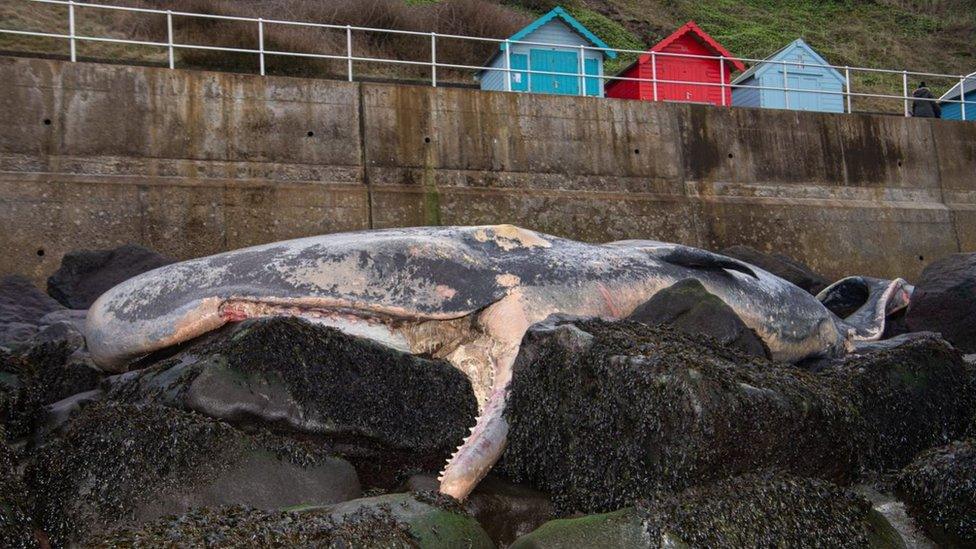
The dead creature was found beached on Tuesday
A dead sperm whale has been found washed up on a north Norfolk beach.
The body of the 39ft (12m) juvenile was discovered lying on rocks near Sheringham on Tuesday.
According to Norfolk Cetaceans, external, the young whale is believed to be part of the pod that was stranded on the Yorkshire coast on Christmas Eve.
It is the third sperm whale found along the Norfolk coast this winter. The others were sighted at Weybourne and in The Wash at Snettisham.
A proliferation of squid in 2020 could have tempted the whales the southern North Sea, said whale expert Carl Chapman
The dead animal, which weighs about 13 tonnes (13,000 kg), will be cut up and moved next week to be buried at a landfill site, North Norfolk District Council said.
Senior environmental health officer Richard Crabb said the situation was "complicated" by access issues to the animal, which was now "smelling badly".
The size of the whale means it is impossible to incinerate at a pet crematorium.

Analysis: By Rob Deaville, of the UK Strandings Investigation Programme
We tend to get five or six sperm whales each year around the UK so they are fairly uncommon events. Most strandings are smaller cetaceans like common dolphins.
There are many strandings of sperm whales going back centuries so there is certainly a natural component to this happening.
Equally, there may be some unnatural drivers as well. The bottom line is we do not really know.
The animals decompose very quickly so, unless you get to them within 24 hours, a lot of the organs begin to degrade and it significantly limits what you can gather in terms of a pathological investigation.
These are a deep-diving species that are normally found off the Continental shelf or where the water depth is more than 700m (2,297ft).
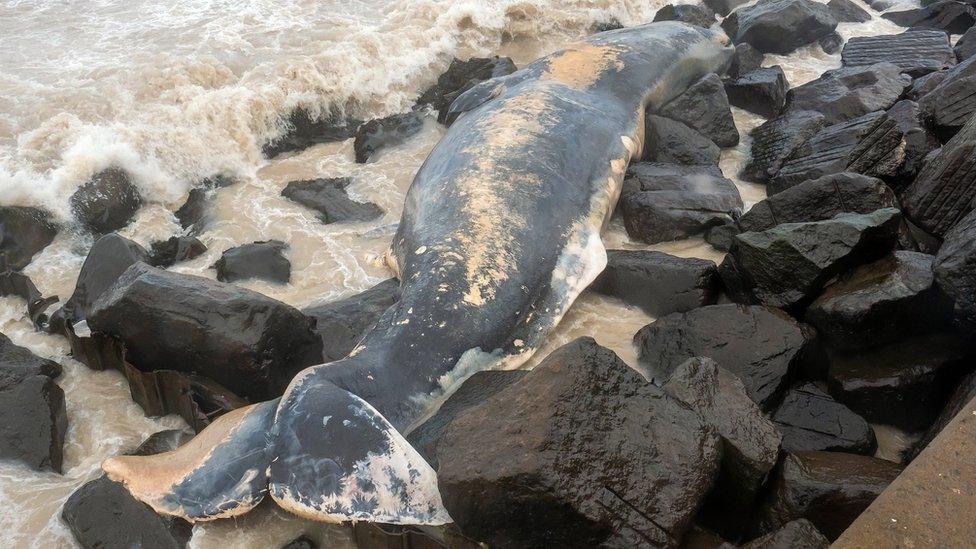
Cromer and Sheringham Coastguard warned beach walkers "dead mammals can be full of dangerous toxins and other things so please stay away"
Occasionally, sperm whales will go the wrong way and end up in the southern North Sea, which is a very alien environment for them because it is quite shallow.
Their sonar will not work effectively and mistaken navigation is another potential cause linked to sperm whale strandings in the North Sea.
Death is almost certainly an outcome for those animals that spend any period of time in its busy shipping channels.
For the last couple of years, we have had about a 1,000 strandings each year of all cetaceans around the UK sea coast.
If people see a live stranding they should call any rescue group including the RSPCA or the British Divers Marine Life Rescue. , external

Find BBC News: East of England on Facebook, external, Instagram, external and Twitter, external. If you have a story suggestion email eastofenglandnews@bbc.co.uk
Related topics
- Published4 January 2021
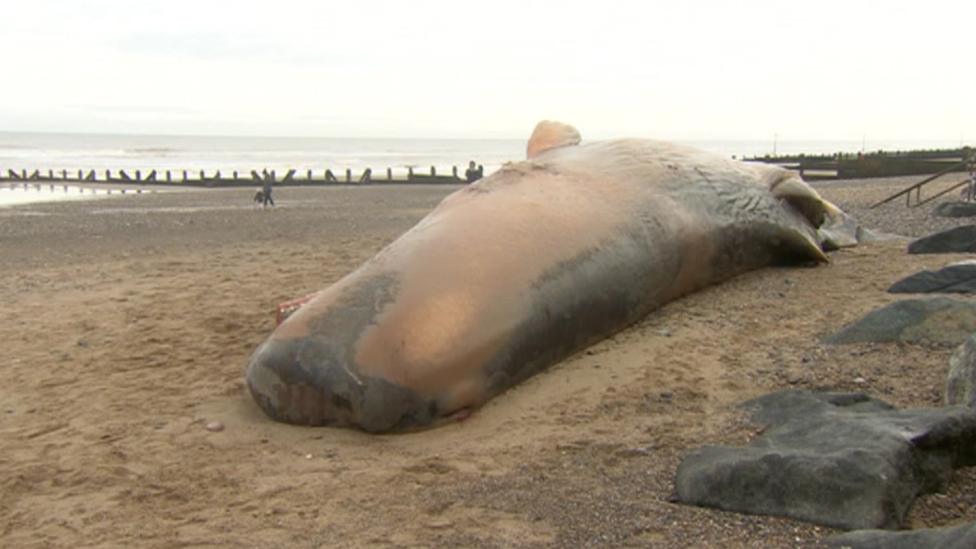
- Published1 December 2020
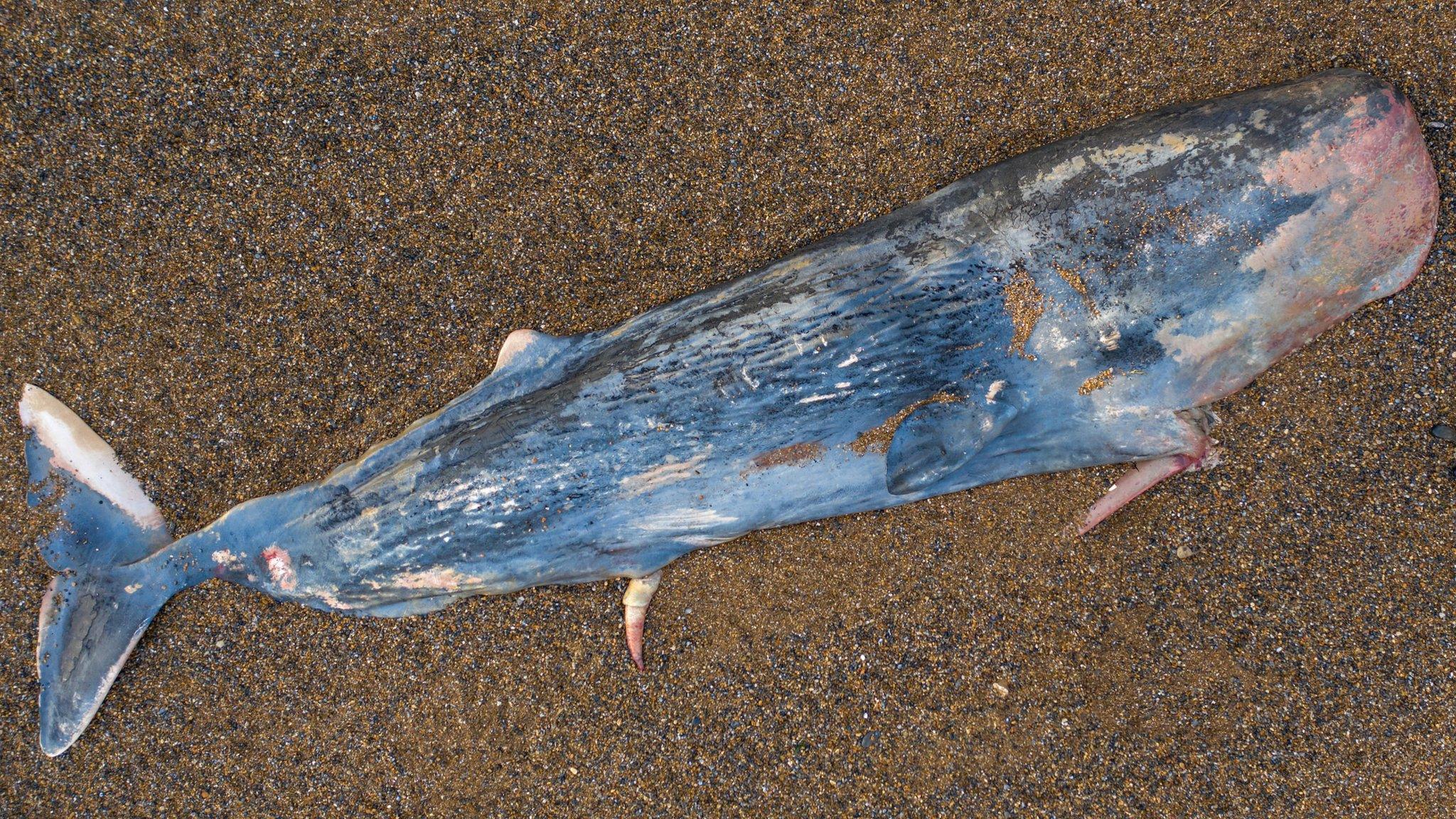
- Published24 November 2020
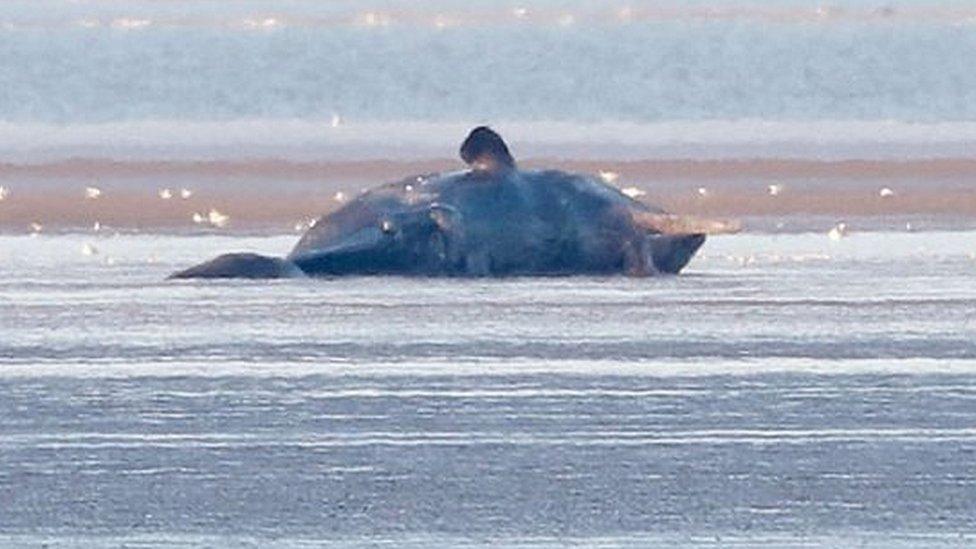
- Published26 January 2016
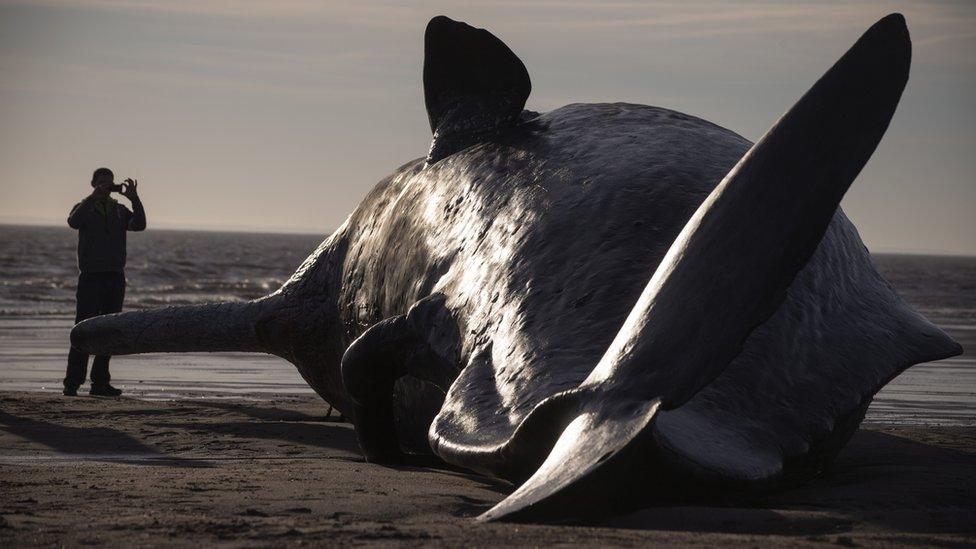
- Published23 January 2016
